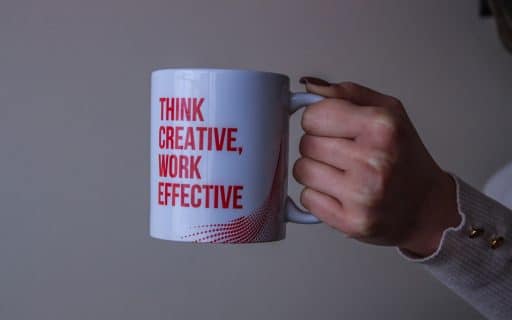Getting to Know Figma and Sketch
Introduction to Figma
Figma’s like having a party online where everyone’s invited. This intuitive design tool lets us work together in real-time, like passing notes in class but way cooler. It’s got the magic combo of vector editing and group collaboration, and trust us, anyone—from your artistic cousin to your engineer mate—can jump in and start creating. Being cloud-based means our masterpiece is tucked safely away in that internet space so you can whip it out wherever you go—goodbye, USB troubles!
We love that Figma helps us blend different tools like a barista perfecting a latte, making sure our designs stay sleek and coordinated. To dive into the Figma pool without your arm floaties, check out our beginner-friendly guide here. No complicated manuals needed!
Introduction to Sketch
Sketch is like that trusty old friend for Mac lovers out there. It’s been around the design block for those who adore fiddling with UI and UX intricacies. With a focus on vectors, it’s all about detailed designs and pixel perfection. Sketch is plug-in heaven, meaning you can add a bunch of extras to make it truly yours—kind of like customising your favourite burger with endless toppings.
Even though Sketch likes to hang at your desktop, it hasn’t forgotten the group activity. Its cloud features let you share your thought bubbles with clients or teammates pretty easily. Newbies might trip once or twice getting the hang of things, but once the gears click, it feels like switching from riding a rusty bike to a sleek motorcycle.
Here’s a quick cheat sheet for both design champs:
| Feature | Figma | Sketch |
|---|---|---|
| Platform | Online | Desktop (Mac only) |
| Collaboration | Party in real-time | Cloud teamwork |
| Prototyping | All-in-one package | Need a few extra helpers |
| Plugins | Still sprouting | Plugin paradise |
Whether you’re team Figma or rooting for Sketch, knowing what each brings to the table helps us decide which tool feels like home for our designs. Let’s make our next project pop!
Features Comparison
User Interface and Ease of Use
When we’re checking out the looks and ease of use between Figma and Sketch, they’ve each carved out their own groove. Figma flaunts a slick and easy-to-dig interface that lets us skip around quickly. Since it’s web-based, we can hop onto our projects from any gadget with internet access, making it a breeze to use anywhere.
Meanwhile, Sketch has that old-school desktop vibe going. Some folks love its simplicity, especially if they’re friendly with other design tools. But, here’s the kicker: it only works on macOS, leaving non-Mac peeps in the dust.
| Feature | Figma | Sketch |
|---|---|---|
| Accessibility | Web-based, multi-platform | macOS exclusive |
| Interface | Sleek and modern | Simple and old-school feel |
| Learning Curve | Easy peasy | Mac users-friendly |
Collaboration Capabilities
Where Figma really shines is how it lets us all jump in on the same project at once—kinda like having a design party on a Google Doc. This makes bouncing ideas and getting feedback super quick, perfect for teams that love to group-hug on ideas.
Now, Sketch does this too, but it’s a bit behind the curve. It works with cloud services, but without the real-time magic that Figma offers. So, teamwork is possible, just not as smooth as Figma’s style.
| Feature | Figma | Sketch |
|---|---|---|
| Real-time collaboration | Absolutely | Kind of |
| Commenting and feedback | Built-in | Needs some fiddling |
| Cloud accessibility | Always there, no sweat | Needs file syncing |
Prototyping and Animation Features
Both Figma and Sketch are pretty snazzy when it comes to prototyping and animation. Figma lets us make our designs jump and dance right there in the same place. We can mess with links and transitions without playing platform hopscotch.
Sketch also lets us create some cool prototypes, but if we’re looking to do fancy animations, we might need extra plugins. Basic is good, but if we’re reaching for more, Sketch makes us grab some add-ons.
| Feature | Figma | Sketch |
|---|---|---|
| Integrated prototyping | It’s a go! | Simple, get plugins ready |
| Animation options | Top-notch and user-friendly | Needs boosting with plugins |
| Exporting prototypes | Slick and straightforward | Could be a hassle |
With all this, it’s clear that both Figma and Sketch have their own sets of ups and downs. Knowing how they handle interfaces, get-togethers, and prototype fun can help us figure out which one ticks all the right boxes for our design needs. Curious for more? Jump over to our figma tutorial for beginners and grab some handy resources like figma web design templates and figma design system.
Design Tools and Capabilities
Alright folks, let’s have a friendly chinwag about Figma and Sketch, two popular design tools that promise to make our creative lives easier. We’re going to check out their wizardry in three magical realms: vectors, typography, and image editing.
Vector Editing Tools
Vectors, the unsung heroes of design, keep our graphics sharp and snazzy no matter how we stretch them. Here’s how Figma and Sketch measure up:
| Feature | Figma | Sketch |
|---|---|---|
| Vector Wizardry | Yep | Yep |
| Master of Paths | Top-notch | Pretty good |
| Super Shape Merging | Absolutely | Absolutely |
| Magic Pen | Of course | Of course |
| Shape Arsenal | Many toys | Few toys |
Figma gives us a real playground when it comes to path karate chops. Imagine bending and twisting those lines to your heart’s content. Sketch gives us the goods too, although it’s a bit less on the extreme sports side.
Typography Support
Words matter. And for designers, how they look matters a heck of a lot, too. Here’s how our two tools tackle text:
| Feature | Figma | Sketch |
|---|---|---|
| Font Playground | Unlimited | Not as many |
| Text Styles Galore | Yep | Yep |
| Space Maestro | Super slick | Just fine |
| Font Filing | Cloud magic | Your hard drive |
Figma’s got fonts flying through the digital clouds, making team projects a breeze. Sketch prefers hanging onto them down on your computer, which can be a bit of a downer when you’re flitting between gadgets.
Image Editing Features
Now, onto giving photos a makeover. Here’s the scoop on what Figma and Sketch can whip up:
| Feature | Figma | Sketch |
|---|---|---|
| Resize Magic | Yes | Yes |
| Photo Funk | Filters galore | Low key |
| Disguise Tricks | Oh yeah | Oh yeah |
| Pic-Stretch Magic | Yes | Yes |
Figma lets us sprinkle a bit more magic dust on images with filters and effects, adding that extra pinch of creativity. Sketch might feel a tad plain in this area, doing decent job for straightforward projects but not much else.
So there you have it – whether you’re crafting vectors, playing with fonts, or brushing up photos, both Figma and Sketch pack a punch. The trick is figuring out which one jives with your creative rhythm better. Fancy diving more into Figma? Check out our Figma tutorial for beginners for a deeper dive into its wonders.
Integrations and Plugins
To really get a grip on how Figma and Sketch stack up, let’s dig into how they play ball with other systems and check out their plugins—the nifty add-ons that make our design work snappier.
Third-Party Integrations
Both Figma and Sketch can chat with other apps we often rely on, making it smoother to juggle tasks without hopping around too much. These integrations are like a secret sauce, speeding up our work by letting us use a bunch of apps we already know and love.
| Integration Type | Figma | Sketch |
|---|---|---|
| Project Management Tools | Yes | Not many |
| Collaboration Platforms | Yes | Not many |
| Source Control (Git) | Yes | Nope |
| Cloud Storage | Yes | Yes |
Figma is the star of the show when it comes to hooking up with project management tools. It helps keep everyone on the same page with Slack, Trello, Jira, and more—no more getting lost in emails! Sketch, however, is a bit more introverted, not really out there with too many pals in this sphere.
Availability of Plugins
Plugins are where the real magic happens. They let us tweak things just right and hit our workflow with all sorts of power-ups.
| Plugin Availability | Figma | Sketch |
|---|---|---|
| Total Plugins | 500+ | 150+ |
| Design & Prototyping | You bet! | Yep |
| Content & Asset Management | Absolutely | Slim pickings |
| Accessibility Features | Definitely | A little scarce |
Figma is in the lead with a stash of over 500 plugins, spanning from making flashy prototypes to sorting assets with ease. It’s like having a giant toolbox where there’s always a hammer for every nail. Sketch, though it’s got its own stash, just doesn’t have as many goodies on offer, which might mean fewer ways to jazz up our workflow.
In short, each tool brings something different to the table in terms of integrations and plugins. But, the wider net that Figma casts with its range of third-party integrations and plugin possibilities gives us a leg up. It can really turbocharge our productivity and buff up the results of our projects. For a deeper dive into making the most out of Figma, you might want to peek at our Figma tutorial for beginners.
Cost and Licensing
Time to break down how much using Figma or Sketch is gonna cost us and whether their licenses fit the bill. Let’s look at the pricing right now.
Pricing Models
Both Figma and Sketch come with different pricing highlights. Here’s a look:
| Tool | Free Version | Monthly Subscription | Annual Subscription |
|---|---|---|---|
| Figma | Yes | $12/user | $9/user |
| Sketch | No | N/A | $99/year |
Figma gives us a no-charge version, but it won’t have all the bells and whistles. It’s a solid choice if we’re just starting. Sketch skips the freebie and sticks with a yearly fee.
License Types
How we get our license depends on which tool we’re eyeing. Figma takes the subscription route, while Sketch sticks to a one-and-done payment model.
| Tool | License Type | Description |
|---|---|---|
| Figma | Subscription License | Pay monthly or yearly for access. |
| Sketch | Perpetual License | One-time payment covers one year; updates need renewal. |
Figma keeps us coming back subscription-style. Don’t pay? No play. But once we’ve paid for Sketch, we’re set for a year. Renewals are for updates and support.
Subscription Plans vs. One-Time Purchase
Picking between paying regularly or once affects our wallet. Here’s how they stack up:
| Tool | Type | Cost Structure | Updates/Support |
|---|---|---|---|
| Figma | Subscription | Monthly or Annual | Ongoing updates baked in. |
| Sketch | One-Time Purchase | Yearly renewal necessary | Yearly updates tossed in. |
Grab Figma, and we keep getting new goodies as long as we stay subscribed. With Sketch, we’ll need to refresh our license each year to keep things current.
Knowing how these pricing and licensing rules play out helps us decide what works best for our project needs. Check our pieces on the Figma design system and Figma tutorial for beginners for more on how to make the most of Figma. Look into our Figma web design templates if you’re chasing after different design ideas.
Making the Choice
Choosing between Figma and Sketch might make your head spin, but no worries, we’ve fiddled with both and will walk this path with you. Here’s some food for thought to help us land the perfect fit for our design dreams.
Considerations for Choosing Between Figma and Sketch
Alright, let’s break it down and peek under the hood of these two design champions. Each of them has its own quirks and perks, so let’s dive into the cliff notes of what sets them apart.
| Factor | Figma | Sketch |
|---|---|---|
| Collaboration | Teamwork lives here with real-time collaboration | Solo ride — no real-time teaming up |
| Platform | Easy peasy — works on any gadget through the web | Mac loyalist — only runs on MacOS |
| Prototyping | All-in-one prototyping dreams come true | Basic tools, a little limited |
| Learning Curve | Easy-breezy to start | More hurdles to jump over |
Catering to Your Design Needs
Let’s be honest, it’s all about what ticks our boxes. If our project thrives on people power, Figma’s live-on-the-fly collaboration might be our best pal. On the flip side, if we’re into sketching vectors till the cows come home, Sketch is the buddy you didn’t know you needed.
Think of our crew’s size and how we get things done. Small teams might find Figma’s hand-holding a godsend, whereas big leagues could lean on Sketch for its depth in design structures.
Considering Future Growth
Hey, nothing stays the same, right? As we level up in the design game, our tool needs might shift. Figma’s comfortably parked in the cloud, always ready with updates and the latest toys. This keeps us riding the wave of new design trends like a pro surfer. Meanwhile, Sketch serves up a rich buffet of plugins, keeping our design toolbox full as it evolves.
What if our little projects balloon into something majestic? It helps to know how each tool can stretch to our growing ambitions. And hey, resources like a trusty Figma design system or that beginner-friendly Figma guide might just be the nudge we need in our decision-making marathon.
With all this food for thought, we’re all set to choose between Figma and Sketch, following the trail that aligns with both our current design adventures and the bigger dreams we’re chasing.






